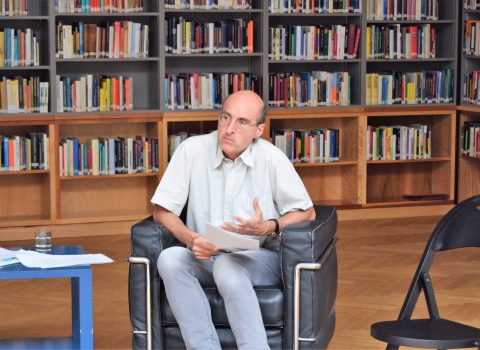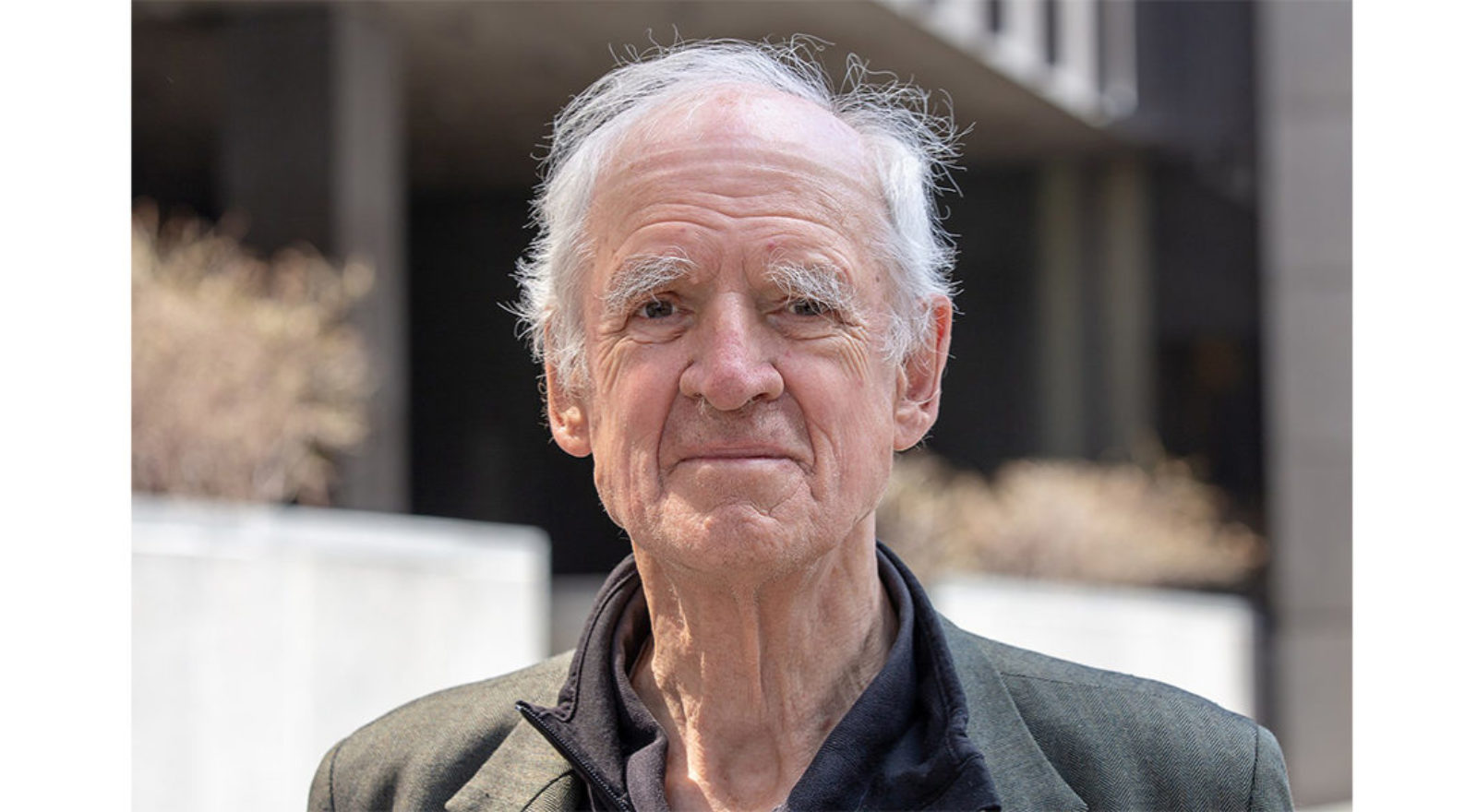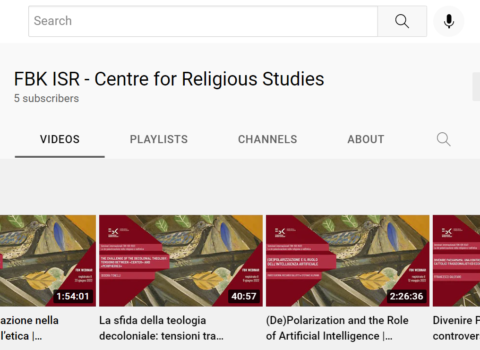
A lecture by Charles Taylor on democracy. what do our “masters” do for us?
Many feel that there’s a problem with democracy in the West today. A master of our time, Canadian philosopher Charles Taylor, has tried to explain the causes and the possible solutions to this crisis.
Thursday, January 12, 2023, in the Kessler Lecture Hall of the Department of Sociology at the University of Trento, Canadian philosopher Charles Taylor gave a lecture on “Degenerations of Democracy“. In front of a packed and diverse audience, the now 91-year-old author of at least three classics of twentieth-century philosophy such as Sources of the Self (1989), The Ethics of Authenticity (1992) and A Secular Age (2007) devoted his talk to the past, present and future of one of the quintessential assets of modern civilization: democratic self-government.
After recalling that democracy, by its very nature, is not a stable condition but a process subject to constant oscillations between phases of flourishing and periods of decline, Taylor focused his attention on an apparent paradox. Why is it that, despite the widespread feeling that after the Trente Glorieuses (1945-1975) the process of democratic expansion and inclusion has significantly stalled (causing what he effectively termed the “Great Downgrade”), this has not led to popular mobilization in favor of the ideals underlying democratic self-rule? And why is it that the overall effect has rather been a wave of apathy and disaffection that has been followed by a virulent polarization of public opinion that is eroding the very foundations of republican institutions even in the oldest democracies, such as the United States?
According to the Canadian philosopher, at the root of the spotty spread of such a sense of powerlessness and political abulia is a profound change in mentality. What has changed dramatically was first of all the view of the forces responsible for historical change. In particular, the real and symbolic centrality of the Market as an autonomous system for regulating individual behavior has progressively reduced people’s confidence in the effectiveness of collective action. In this way, a sense of the opacity of the mechanisms that in an ironclad manner govern the lives of ordinary people outside the private sphere of ties, feelings, private life plans has grown exponentially in individuals who are increasingly isolated from their fellow citizens. Finally, this weak condition has exacerbated conflicts around collective or national identities, which have always been one of the causes of the instability of communities of action that cannot do without strong bonds of solidarity among strangers.
In recent decades, it has been especially the social crenzy produced by transnational migration and the bitter struggles for recognition triggered by the crisis of “meritocratic” mechanisms of hierarchical inclusion in elites (just think of the explosion of the women’s question) that have made a rapid and effective response to such a crisis of confidence in the virtues of liberal democracies all the more urgent. Contrary to the general opinion today, according to Taylor such a response will not happen without an ethical revolution. Indeed, only a big change like this is capable of refreshing people’s faith that there may exist somewhere a solidarity-based way out of socio-political polarization that does not represent the triumph of one faction over the other, but opens up a historically unprecedented horizon from which all would potentially have something to gain.
For Taylor, an unsurpassed example of this kind of generative trust is Martin Luther King’s political bet on the liberating power of collective emancipation from the burden of hatred with which racism toward African Americans has poisoned the functioning of American democracy from its origins. Germs of a similar conversion of heart and mind are encapsulated, in his view, in the instinctive belief of the younger generation in the capacity of human diversity to enrich the lives of all. And it is this belief that nurtures what Taylor described at the end of the talk as his “reckless optimism”.
Charles Taylor is the closest thing to a Nobel laureate in Philosophy that one can come across in our time. His intellectual stature recalls that of other monuments of philosophy of the second half of the twentieth century such as John Rawls, Jürgen Habermas, and Paul Ricoeur. The success of the Lecture organized by FBK’s Center for Religious Studies in collaboration with the Departments of Sociology and Social Research and Humanities and Philosophy at the University of Trento cannot be explained, however, only by his celebrity status. Rather, the impression is that a broad reflection such as the one developed by the Montreal philosopher responds to a specific intellectual need that I would like to tentatively describe here as the need for “masters”.
Is it not anachronistic, however, to suppose that in today’s endless global scientific community, whose procedures aim at producing as objective and depersonalized remnants of knowledge as possible, there is still room for a form of knowledge that apparently has more the value of personal testimony than that of empirical evidence that can be replicated at will?
Beyond the ceremonial homage that since Newton’s time has been paid to the “giants” on whose shoulders the “dwarves” would rest that, nonetheless, have been rewarded by fate with the ability to see farther than they can thanks to the cumulativeness of scientific knowledge, the point is to understand whether there is a specific cognitive performance that we demand from our metaphorical “masters” by virtue of the irreplaceable gifts that our real masters have bestowed on us at decisive moments in our intellectual development. The thesis I would like to argue in conclusion is that exemplary epistemic performance of this kind does indeed exist and still plays a fundamental role in the learning processes of professional scholars. I would describe it, in short, as an additional (and supererogatory) exercise of reflexivity, by which those who can bear the title of “teacher” succeed in achieving goals that most of us, in spite of our talents, often do not escape. I refer in particular to that gestalt shift that, in some rare cases, is able to transform a very detailed knowledge of the margins into the recognition of a crucial truth for our existences.
Rather than a form of knowledge in the strict sense, we are confronted here with a realization much like the recognition of a face. I have in mind, specifically, the extraordinary motivating effect that faces have on people who continually experience in their lives the structural motivational deficit typical of impersonal beliefs and convictions.
So, it is not surprising that sensitivity to the importance of “masters” in our lives may be sharpening at a time in history when increasingly knowledge-based societies are being forced to contend with epochal challenges before which even scientists increasingly feel a sense of dismay, helplessness and frustration that threatens to dangerously alienate them from the indispensable good of democratic self-governance.
Restoring the alliance between knowledge and hope actually requires testimonies that effortlessly persuade us of the value in itself of goods that have the gift of making us rich without taking anything away from others. Those who have dedicated their lives to the pursuit of truth should already be convinced of this, but ideals are notoriously fragile goods on this planet. Fragile, yes, but not powerless. This is the main lesson of life and culture that we derive from our masters.



